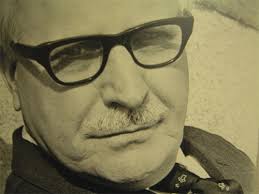It is not practical to describe John Creasey (1908 - 1973) unless perhaps one is prepared to write a book about him. But a picture surely emerges from a simple reiteration of facts.
He published 562 books following 743 rejection slips, with worldwide sales in November 1971 of over 80 million copies in at least 5000 different editions in 28 different languages. Britain and the United States were his main markets with total sales in each of over two million copies a year with at least half a million elsewhere. There are 11 different series, four of them (Roger West, the Toff, the Baron and Patrick Dawlish) with either 50 titles reached or very close, two series (Dr Palfrey and Department Z) with over 30 titles, and the great Gideon with 21. A further 50-odd titles have been published as written by Michael Halliday.
All his books were written first in longhand on specially ruled paper and revised five or six times before going to the publisher - often 12 months after the first draft was finished.

John Creasey lived near Salisbury, Wiltshire, England on land once given to Sir John Botenham by King John. Married four times, he had three sons, three daughters-in-law and seven grandchildren.
An extensive traveller, he twice went by sea and car round the world and virtually commuted between England and the USA. He visited 49 of America's states and knew 47 of them very well. He also knew Europe, north, east, south and west, and drove as far as Moscow through Poland, East Germany, Czechoslovakia and Hungary.
Two television series, Gideon and the Baron, have been made from his books, as well as a number of movies, including Gideon's Day starring Jack Hawkins.
Founder of the All Party Alliance in England, a political movement advocating government by the best men from all the parties working together, he fought four by-elections in 1967/68, once getting twice as many votes as the Liberal party candidate with 14% of the votes cast.
He advocated not only shared political control of nations but industrial democracy in which workers, management (with marketing and research staff), private investors and the State (or Federal Union) shared ownership and control of all industry and commerce. He claimed that these systems would end political strife and reduce strikes, thus increasing national prosperity to the point where the State's profit could virtually do away with income tax.